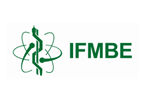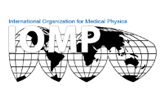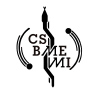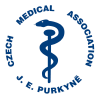Call for Abstracts
In order for an abstract/full paper to be included in the Program and published in the Book of Abstracts/Proceedings, the presenting author must pay the full registration fee and attend the conference to present the abstract. One-day registration fee does NOT include any abstract. Registration fee payment deadline for inclusion of the abstract / full paper in the Program and in the Book of Abstracts/Proceedings: March 15, 2018
Submitting abstractsThe deadline for submitting abstracts is January 31, 2018.
Abstracts submitted in the period from December 20, 2017 to January 31, 2018 that are accepted will only be included in the Book of Abstracts. Authors of these abstracts will not be allowed to submit full papers.
Method of submission
- All abstracts must be submitted only via the online form that is accessible after Login.
- The submitting author of the abstract must be a presenting author ("the submitting author = the presenting author").
- The submitting (= presenting) author does not have to be the first author.
- Authors will be notified about the delivery of their abstract by e-mail immediately. In case you will not receive confirmation within 24 hours, please check your spam folder and in case of no confirmation e-mail, please contact: abstracts.iupesm2018@guarant.cz
- Authors will be able to edit their abstracts within 24 hours from the time of submission. After this period the abstract will be locked and send to reviewers.
- All correspondence concerning the abstract will be sent to submitting author’s e-mail address.
Abstract layout
- The length of the abstracts should not be more than 300 words, plain text.
- Title: Make the title of the abstract brief, clearly indicating the nature of the investigation. Use a capital letter for the first letter in the title only (DO NOT capitalize each word).
- Names of the authors: Submit the full given name(s) and the family name. Do not include degrees or professional titles.
Conflict of interest
When an author or the institution of the author has a relationship, financial or otherwise, with individuals or organizations that could influence the author’s work inappropriately, a conflict of interest may exist.
Examples of potential conflicts of interest may include but are not limited to academic, personal, or political relationships; employment; consultancies or honoraria; and finical connections such as stock ownership and funding. Although an author may not feel that there are conflicts, disclosure of relationships and interests that could be viewed by others as conflicts of interest affords a more transparent and prudent process. All authors must disclose any actual or potential conflict of interest. The Book of Abstracts will publish such disclosures if judged to be important to readers.
Statement of informed consent
Patients have a right to privacy that should not be infringed without informed consent. Identifying information, including patients' names, initials, or hospital numbers, should not be published in written descriptions, photographs, and pedigrees unless the information is essential for scientific purposes and the patient (or parent or guardian) gives written informed consent for publication. Informed consent for this purpose requires that a patient who is identifiable be shown the manuscript to be published.
Identifying details should be omitted if they are not essential. Complete anonymity is difficult to achieve, however, and informed consent should be obtained if there is any doubt. For example, masking the eye region in photographs of patients is inadequate protection of anonymity. If identifying characteristics are altered to protect anonymity, such as in genetic pedigrees, authors should provide assurance that alterations do not distort scientific meaning and editors should so note.
Statement of human and animal rights
When reporting experiments on human subjects, authors should indicate whether the procedures followed were in accordance with the ethical standards of the responsible committee on human experimentation (institutional and national) and with the Helsinki Declaration of 1975, as revised in 2000 and 2008. If doubt exists whether the research was conducted in accordance with the Helsinki Declaration, the authors must explain the rationale for their approach, and demonstrate that the institutional review body explicitly approved the doubtful aspects of the study. When reporting experiments on animals, authors should be asked to indicate whether the institutional and national guide for the care and use of laboratory animals was followed.
Contact
If you have any questions regarding abstract submission, please contact abstracts.iupesm2018@guarant.cz






